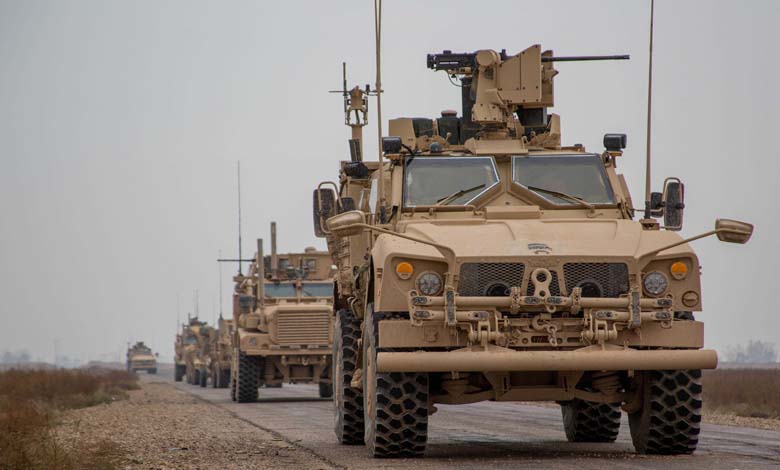Report: ISIS without land but it adapts and its threats persist

The U.S. Department of Defense coordinator for the Global Coalition to Defeat ISIS, Alan Matney, revealed that the coalition is adopting new strategies and plans to counter the group’s threats worldwide, as reported by “Al-Hurra” from the U.S. Department of Defense, the Pentagon.
-
Global Turmoil Gives ISIS a Chance to Resume Its Terrorist Activities… How?
-
Neutralization of several leaders of ISIS and Al-Qaeda organizations in Syria… Details
In a report published Thursday on the Pentagon’s website, Matney stated that ISIS no longer “controls any territory,” but the ideology embraced by the group still persists, and the global coalition is needed to confront these threats.
In 2014, ISIS invaded vast areas in Iraq and Syria, threatening millions of people in the Middle East with barbaric methods, including murder, rape, and genocide, according to the report.
The report noted that ISIS was different from other terrorist groups as it claimed to “establish a caliphate in the Middle East” and eliminate those who did not follow its beliefs. As a result, the group committed genocidal crimes against the Yazidis in Iraq, killing at least 5,000 people.
Today, the vast territories that were once under ISIS control have been liberated, thanks to the U.S.-led international coalition, which established a new and effective way to confront this global threat.
-
What are the Reasons Behind the Increase in ISIS Activity in Africa and What are the Scenarios for its Defeat?
-
Betting on a “Breath of Life”… U.S. Officials Warn of ISIS’s Return in Syria
Matney stated: “I believe if we’ve learned anything over the past ten years, it’s that this threat doesn’t disappear but changes and adapts.” He added that “the coalition is now in a normal and healthy phase where it too adapts to these developments.”
The report highlighted that over the past decade, the coalition has evolved from activities aimed at reclaiming territories under ISIS control to “tracking the group’s next moves.” Matney explained that “groups like ISIS constantly assess their strengths and weaknesses to exploit them, and we do the same.”
-
Is South Africa the Financial Hub for ISIS in Africa?
-
“ISIS Khorasan” Has Become the Biggest Threat to Europe… Why?
Matney noted that like other terrorist groups, ISIS “wants us to overreact or act in ways that are hard to maintain strategically. It wants us to use a lot of resources, so that countries cannot face its threats on their own.”
He also pointed out that the coalition’s strategy has shifted from conducting ground military operations to intelligence sharing. He clarified that the strategy to defeat ISIS also focuses on burden-sharing among coalition countries regarding counter-terrorism training.
-
Europe: How TikTok Has Become a Tool for ISIS to Recruit Teenagers
-
ISIS urges its followers to “slice” pedestrians in London using trucks… Details
Regarding Iraq, Matney said that the Iraqis are now “very skilled in counter-terrorism operations and have become truly capable partners,” adding that the international coalition also has “highly skilled local partners in Syria.”
Due to the successes of the international coalition, ISIS is currently facing more difficulties operating in Iraq and Syria and is now trying to expand into West Africa, Somalia, Afghanistan, and Southeast Asia.
-
Forecasts of a surge in ISIS attacks… UN warning
-
Serious Warning from the U.S. Army: ISIS is Trying to Reorganize Itself… What’s New?
The U.S. official explained that in these areas, the group uses elusive methods, “re-infiltrating into areas that are hard to detect, requiring different methods to track them, and the international coalition is adapting to these changes.”
Matney also discussed the advantages of the international coalition, noting that despite the absence of an “American” presence in some areas such as Afghanistan and West Africa, the coalition, made up of 87 partners, is capable of meeting the needs. This, he said, is the strength of the coalition.
-
ISIS returns with new tools: What are they?
-
Has Iraq begun to recover economically after years of crisis?
He described the international coalition as a “multilateral and unique organization” that relies on flexibility and speed in decision-making, which has been the key to its success. The coalition, he added, is a “multilateral organization based on consensus,” according to the report published on the U.S. Department of Defense’s website.











